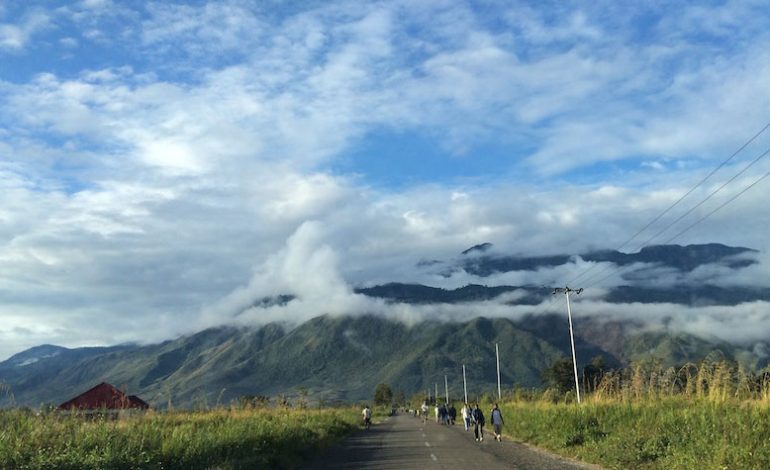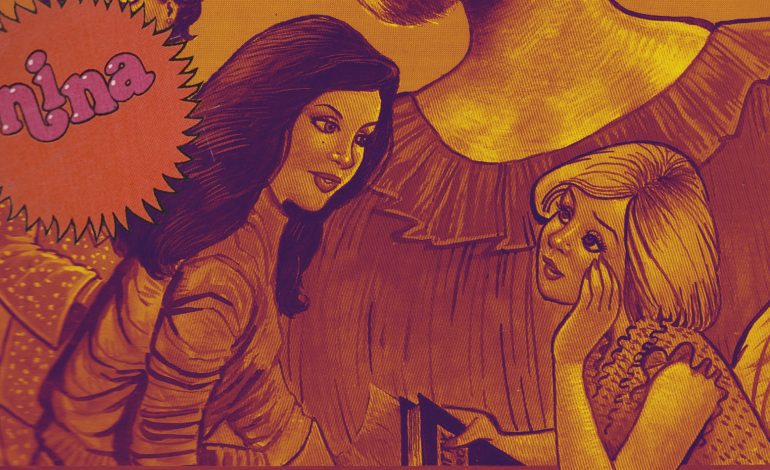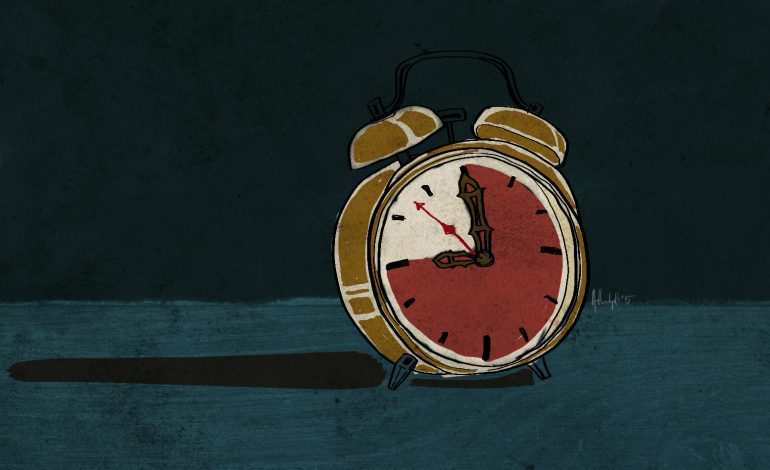Filmmaker Talks of the Papuan Challenges

Tanah Mama is an important documentary. It may still be inferior technique-wise, which is understandable given that it is a debut work of a young filmmaker. But as with any good documentary, it is a slap in the face and a punch in a gut, as we are reminded yet again of how this country, the government, and all of us have been ignorant to the fate of our brothers and sisters in Papua.
Told from the point of view of Halosina, a mother of four, the film depicted her struggle to make ends meet and to feed her children as well as her courage to stand up for herself, including against his polygamous husband.
The film is made by 27 year-old Asrida Elisabeth, who received the funding from Ford Foundation’s Project Change and was mentored by producer Nia Dinata and several other filmmakers.
In an interview with Magdalene recently, Asrida expressed her frustration and sadness over the abandonment of Papuans that she witnessed first hand. Below is an excerpt of the interview.

Asrida Elisabeth in between film shootings in Papua. (Photo by Kalyana Shira Foundation)
Question: How did you get to work in Papua?
Answer: My sister worked on a research about social movement in Papua and she received a lot of help from Father John Jonga, a Catholic priest who is also a human rights activist. She said the priest was very busy, but no one helped him. I just graduated from Udayana University in Bali, I had never been to Papua. So, I decided to come and work for Father John.
Have you always been interested in filmmaking?
Yes. I have watched Nia’s films for a long time. One day, the film community Papuan Voices informed me that there was this Project Change that would provide funds for documentary filmmakers so I applied for it, sending my story idea and was accepted.
There were 30 of us from the entire country. We were invited to a three-day workshop in Jakarta about film, gender and so on. We went home for research, and then we sent back our stories, pitching it again. The committee then picked five films to be funded. Aside from me, there were six other filmmakers making the five films: three women, two men and one transwoman. So the committee really pays attention to the diversity.
How did you come up with this story?
I live in Wamena, so I’ve witnessed the hardship there. People struggle for life. The economy is tough, buying goods is difficult, access to health is severely lacking, the land issues are problematic and so on.
I was researching for a book called Papua Bercerita (Papua Telling Stories) when I met Mama Halosina in a community meeting. She was the bravest, most vocal and opinionated. Even more so then many men. That is including her decision to leave her husband’s house after he failed to clear the land for his family as obligated by the custom.
Mama Halosina is a midwife, but being a midwife in Papua brings no income. Their service is free. Meanwhile, the land is owned by her husband. Papua is vast, people can clear land for themselves, but when you live in your husband’s village, you cannot freely open a land. Wamena’s custom rules every aspect of people’s lives. The job division is clear: husbands clear land, wives cultivate it.
The regional autonomy also contributes to more problems. It keeps money circulating in the cities, attracting men to go there instead of farming their land. Halosina’s husband also preferred to work random jobs at the city to clearing the land. It’s not true that Papuan people are lazy or losing their way. It’s just that the system uprooted them from their custom.
Mama Halosina left her husband’s house but didn’t divorce him. Is divorce a taboo?
It happens, but husbands are usually reluctant to do it. The custom forbids husbands to divorce first wives.
 Halosina carrying her son (right) while walking with other villagers to the market. (Photo by Kalyana Shira Foundation)
Halosina carrying her son (right) while walking with other villagers to the market. (Photo by Kalyana Shira Foundation)
What was the biggest obstacle in making this film?
The main obstacle is language. I can only understand the language a little, so we were always accompanied by an interpreter when researching and shooting. The shoot went quickly and sometimes there were unpredictable developments, like when Mama met the village head. I didn’t know what was going on, but we just kept on rolling.
There is an interesting dialog in the film, where people refuse family planning because they fear it would make them more of a minority.
There was a discussion about family planning at (state-owned radio station) RRI in Wamena, in partnership with (the family planning agency) BKKBN. The sources were all women, and all of the callers were men who, except for one, rejected family planning. They fear they would become more of a minority. Now the ball is in the government’s court, to address this problem.
The thing is, even basic health service is very severely lacking. Basic services like immunization is not accessible, let along big ones like HIV. We work in the field, and we’ve seen how health centers are absent, and even if they exist the service is poor, medications are expired. We saw how people die because of simple, curable diseases. If we reported this to the media or the district head, they would instead accuse us of telling lies.
Free hospital and education are just empty slogan. The only ones who reach the remotest kampong are soldiers. The government is very quick to resolve everything through the military. The government controls the security in Papua, but the rest is ignored. Civil registration is a joke. Mama Halosina, for example, has just got her state ID card ever the month before last. And since she doesn’t know for sure what year she was born, the officer casually put 1997 as her birth year.
Earlier in the discussion, actress Melissa Karim, who was brought up a Catholic, said she was angry with the Church after seeing this film. She felt the Church did not do enough to eradicate poverty. What do you think?
That is the very question of many people: where is the church? Even in churches locals are marginalized. The church as a system does not work. If there is a shooting, the response is very late. Most efforts (to improve people’s lives) are done at personal level.
The church has been in Papua for a long time, even before there was government. Many people work for Papua, but they don’t want to understand the real issue, so everything is disconnected.
Has Halosina seen this film?
Yes, we played it for her and her husband, they watched it together. She said she was amazed seeing herself on the screen. She was laughing and crying. Afterwards the couple had an argument. The husband said he was embarrassed with the depiction of himself in the film.
Are Halosina’s children going to school now?
Yes, they are. All four of them.
Read Hera’s review of the movie Selamat Pagi, Malam.






















